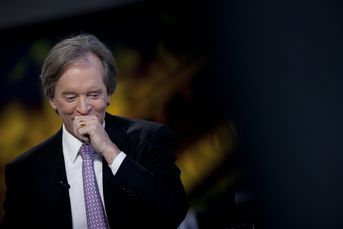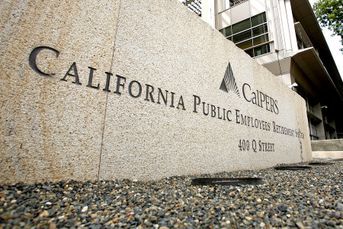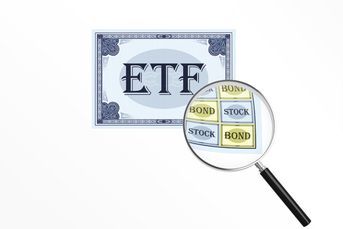Janus CEO Weil faces uphill climb in second year on job
Sixteen months into the job, Richard Weil, chief executive of Janus Capital Group Inc., faces a host of challenges as he attempts to stop the downward slide at the money management firm
Sixteen months into the job, Richard Weil, chief executive of Janus Capital Group Inc., faces a host of challenges as he attempts to stop the downward slide at the money management firm.
Continuing investment performance problems and redemptions among Janus’ subsidiaries, along with a shareholder vote rejecting his $20 million pay package, have marked Mr. Weil’s tenure since he took the helm in February 2010.
Janus’ $173.5 billion in assets under management as of March 31 were little more than half its $321 billion peak in the first quarter of 2000.
“We know that we haven’t yet delivered the results that we need to deliver,” Mr. Weil said, noting that turning around the money manager will be a multiyear process.
Janus stock closed at $10.33 a share May 31, below the $13.50 a share that Franklin Resources Inc. had offered for the company in July 2009, according to sources. That deal was pushed by former CEO Gary Black but rejected by the Janus board, which opted to remain independent and attempt to rebuild the business.
Mr. Weil — Janus’ fifth CEO in little more than a decade and a former chief operating officer at Pacific Investment Management Co. LLC — is the latest executive given the mission of forging a new path for the floundering manager.
Janus, a Wall Street darling in the 1990s, invested heavily in technology stocks and rode the boom until it exploded in 1999. A market-timing scandal followed in 2003, and Janus agreed to pay $226 million to settle federal charges that it gave trading advantages to a major investor group at the expense of more ordinary investors.
The company has been in recovery mode ever since.
Mr. Weil’s ambitious plan for Janus includes increasing fixed-income — where performance has been strong — and international business operations. The CEO said that he wants to more than triple the group’s $16.1 billion fixed-income and $15.6 billion international businesses within three to five years.
That will be easier said than done, analysts said.
Achieving an increased presence in the fixed-income arena could be difficult, said Greg Warren, a senior equity analyst at Morningstar Inc.
“Janus could succeed, but it’s not going to be easy, because of the dominance of other fixed-income shops: BlackRock [Inc.], Franklin Resources [Inc.], [Western Asset Management Co.] and Pimco,” he said.
Subsidiary Janus Capital Management LLC, with its bottom-up fundamentally driven research efforts, offers an alternative to the macro top-down approach of other bond managers, Mr. Weil said.
At least initially, he can point to Janus’ fixed-income operation as a bright spot in the company’s operations. The company had fixed-income net inflows of $4 billion for the 12-month period ended March 30.
Mr. Weil added new executives both to the fixed-income and international teams over the past few months, including Augustus Cheh, who was named president of Janus Capital International and is based in Hong Kong. Mr. Cheh was chief executive of AllianceBernstein Hong Kong, where Mr. Weil said that he helped build that firm’s presence in Asia ex-Japan.
But even as he attempts to expand, Mr. Weil has to deal with pressing concerns about Janus’ legendary U.S. equity strategies, including those of Intech Investment Management LLC, its quantitatively driven equity subsidiary.
EQUITY OUTFLOWS
Combined net outflows of $16 billion came from the equity strategies of Janus Capital Management and Intech, according to a review of the company’s 2010 financial statements.
Growth-oriented U.S. equities, which account for about $62 billion — Janus’ largest asset class — saw $7 billion in net outflows during the 12 months ended March 31.
Meanwhile, Intech, which has $44.2 billion under management, had $9 billion in outflows.
Outflows originally were driven by poor investment results, Janus officials have said. But while Intech recovered last year and now has all its strategies outperforming their benchmarks, redemptions continue, a general trend among quantitative investment managers industrywide.
Intech has a superior investment record that goes back several decades, Mr. Weil said.
“But they face very strong quantitative industry head winds where there are, candidly, very few clients seeking to hire quantitative managers,” he said.
“It’s a question of a pendulum, and the pendulum has swung to the extreme away from quantitative approaches,” Mr. Weil said.
Performance hasn’t improved, however, for Janus’ traditional domestic-growth-equity funds. Seven of Janus’ 10 largest mutual funds were in the bottom quartile for the 12-month period ended April 11, according to a May 17 report from J.P. Morgan Securities LLC.
Mr. Weil said that he is sticking with his investment team for now but won’t rule out replacing investment staff members if performance continues to lag.
“It’s important to be patient in how you evaluate underperformance,” he said.
“That said, no one in our business has unlimited permission to continue to underperform for our clients, and neither do we. We simply must improve those disappointing short-term results,” Mr. Weil said.
In an ironic twist for Janus, where investment employees were once called cowboys because of their aggressive investing philosophy, Mr. Weil said that they now are too cautious in picking stocks.
Investment employees “have been underconfident in the strength of the recovery and didn’t buy the most aggressive, highest [price-earnings] growth stocks out of concern and conservatism that the recovery might not be as strong as the market has turned out to be,” he said.
But analysts say that even if investment performance improves, Janus still could be hampered by distribution challenges, particularly on the retail side. That is a significant problem for the company, where retail assets account for almost 70% of its total.
DISTRIBUTION NETWORK
Janus still is in the process of building its distribution network after abandoning its direct-sales model several years ago, Mr. Warren said.
Meanwhile, J.P. Morgan Securities analyst Kenneth Worthington wrote in the May 17 report that Janus mutual fund redemptions are likely to get worse. Key distributor Charles Schwab & Co. Inc. removed 10 Janus funds from its select list over the past year, and Fidelity Investments pulled three from the Fidelity Fund Picks in the first quarter of this year, he said.
Other firms could follow, Mr. Worthington said.
“We believe that third-party distributors of mutual funds use similar data to evaluate funds,” he wrote in the report.
Funds are added and dropped by distributors in the normal course of business, Mr. Weil said.
Given increased redemptions from Janus mutual funds, it isn’t surprising that the firm’s distribution partners are becoming increasingly concerned about its underperformance, said analyst Michael Kim of Sandler O’Neill + Partners LLP.
A sustained turnaround in the funds’ performance likely will take time and will be followed by a time lag before inflows improve, he said.
Regaining business is “a gradual process. It’s not going to happen overnight,” Mr. Kim said.
Another issue is the slower inflows into one of Janus’ previous bright spots, the strategies of subsidiary Perkins Investment Management LLC, he said.
The growth rate has slackened for the Perkins value-oriented mutual funds.
SHAREHOLDERS REJECT PAY
Those funds had experienced annualized growth of 20% from 2008 to the first half of 2010, but for the past three quarters, the rate of growth dropped to 4% to 5% because of marginal underperformance, Mr. Kim said.
Adding to Mr. Weil’s woes was the April 26 advisory vote by shareholders rejecting his $20 million 2011 compensation package, as well as the pay of four other named Janus executives.
With the vote, Janus became one of just a handful of companies where executive pay was rejected. Proxy advisers Glass Lewis and Institutional Shareholder Services both had urged shareholders to reject the pay packages, maintaining that Janus’ pay-for-performance criteria were inadequate.
Mr. Weil said that he took the vote very seriously.
“I see my job as to make sure that my pay and our firm’s compensation aligns with delivering good results for our investment clients and delivering good returns for our owners,” he said.
Lost in the discussion about underperformance is the fact that operating margins have been improving, said John Miller, senior vice president of the Ariel Fund, which is Janus Capital Group’s second-biggest shareholder.
Janus’ first-quarter operating margins were 32.4%, compared with 27% for the year-earlier quarter, he said.
Ariel is still bullish on the company, Mr. Miller said.
Mr. Weil said that he, too, is optimistic about Janus’ future.
“I think we are on the right path, in spite of the fact that we face some significant challenges in the short term,” he said.
Randy Diamond is a reporter for sister publication Pensions & Investments.
Learn more about reprints and licensing for this article.






